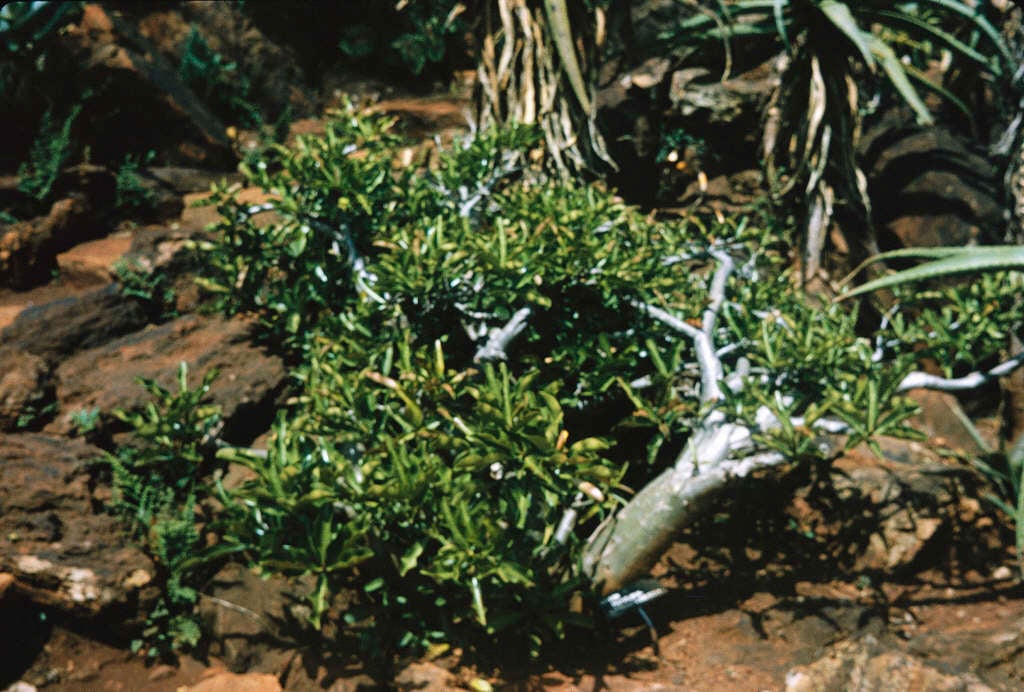Adenium obesum
desert rose
A succulent, shrubby perennial with very swollen stem-like caudex tapering to a branched apex bearing small clusters of red, pink or white flowers, which open before the ovate leaves
Synonyms
Adenium obesum 'Desert Rose'Adenium honghel
see moreAdenium coetaneum
Adenium arabicum
Adenium obesum var. obesum

Buy this plant
Size
Ultimate height
1–1.5 metresTime to ultimate height
2–5 yearsUltimate spread
1–1.5 metresGrowing conditions
Moisture
Well–drainedpH
Alkaline, NeutralColour & scent
| Stem | Flower | Foliage | Fruit | |
| Spring | Green | |||
|---|---|---|---|---|
| Summer | Pink Red White | Green | ||
| Autumn | Green | |||
| Winter |
Position
- Partial shade
Aspect
South–facing or West–facing
Exposure
Sheltered Hardiness
H1ABotanical details
- Family
- Apocynaceae
- Native to GB / Ireland
- No
- Foliage
- Deciduous
- Habit
- Bushy
- Potentially harmful
- Harmful if eaten. Wear gloves and other protective equipment when handling Pets (dogs, cats): Harmful if eaten - see the HTA guide to potentially harmful plants for further information and useful contact numbers
- Genus
Adenium are shrub-like, succulent perennials with a bottle-shaped, swollen caudex, branched at the apex and bearing terminal clusters of simple leaves, with small salver-shaped flowers
- Name status
Correct
- Plant range
- Arabia, Tropical Africa
How to grow
Cultivation
Under glass grow in peat-free, loam-based potting compost with added sharp sand in full light with shade from hot sun
Propagation
Propagate by seed sown as soon as ripe at 21°C (70°F). Root cuttings from non-flowering shoots in summer with bottom heat
Suggested planting locations and garden types
- Architectural
- Low Maintenance
Pruning
No pruning required
Pests
May be susceptible to aphids
Diseases
Generally disease-free
Love gardening
Sign up to receive regular gardening tips, inspiration, offers and more
View our Privacy Policy
Get involved
The Royal Horticultural Society is the UK’s leading gardening charity. We aim to enrich everyone’s life through plants, and make the UK a greener and more beautiful place.